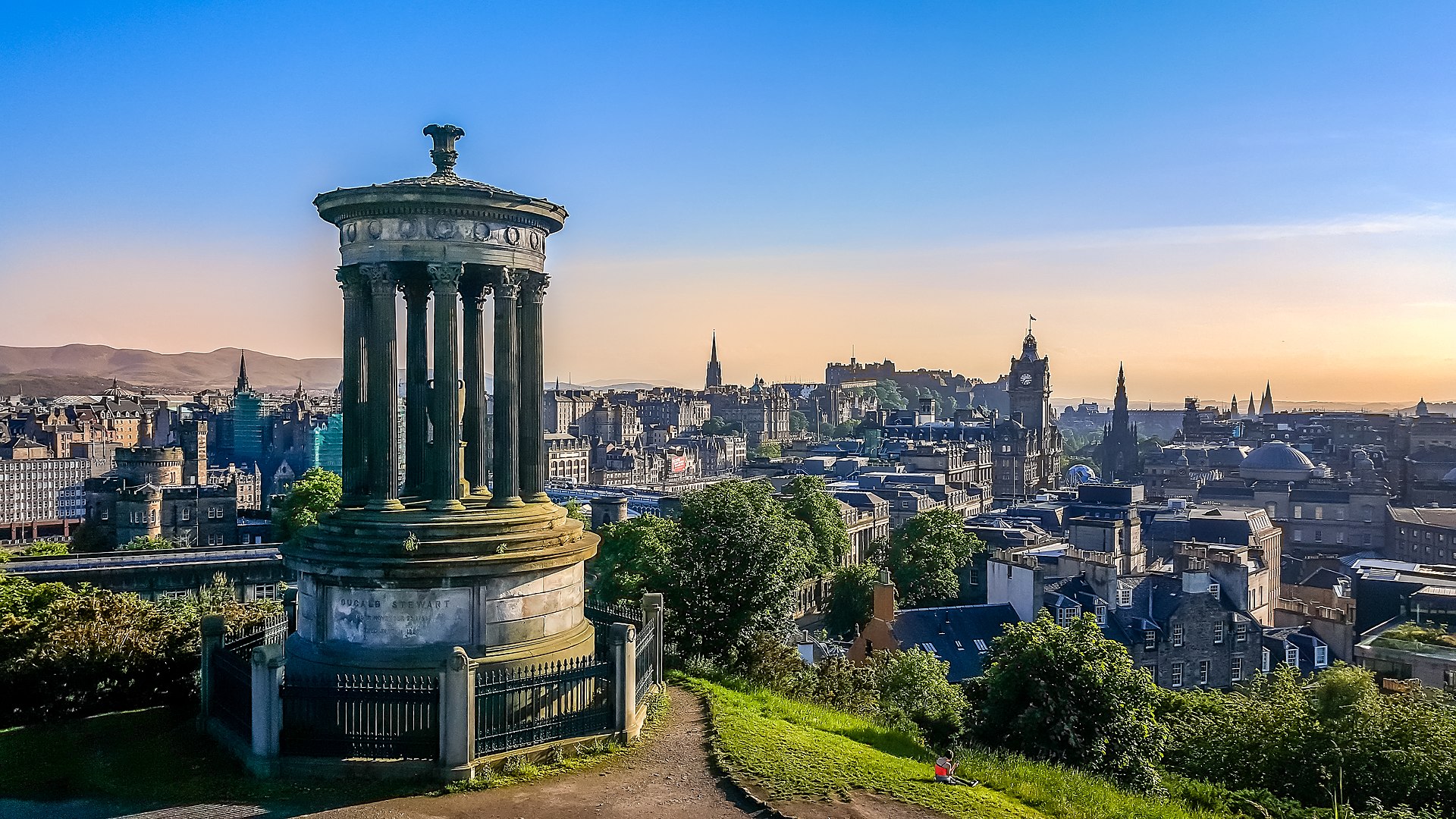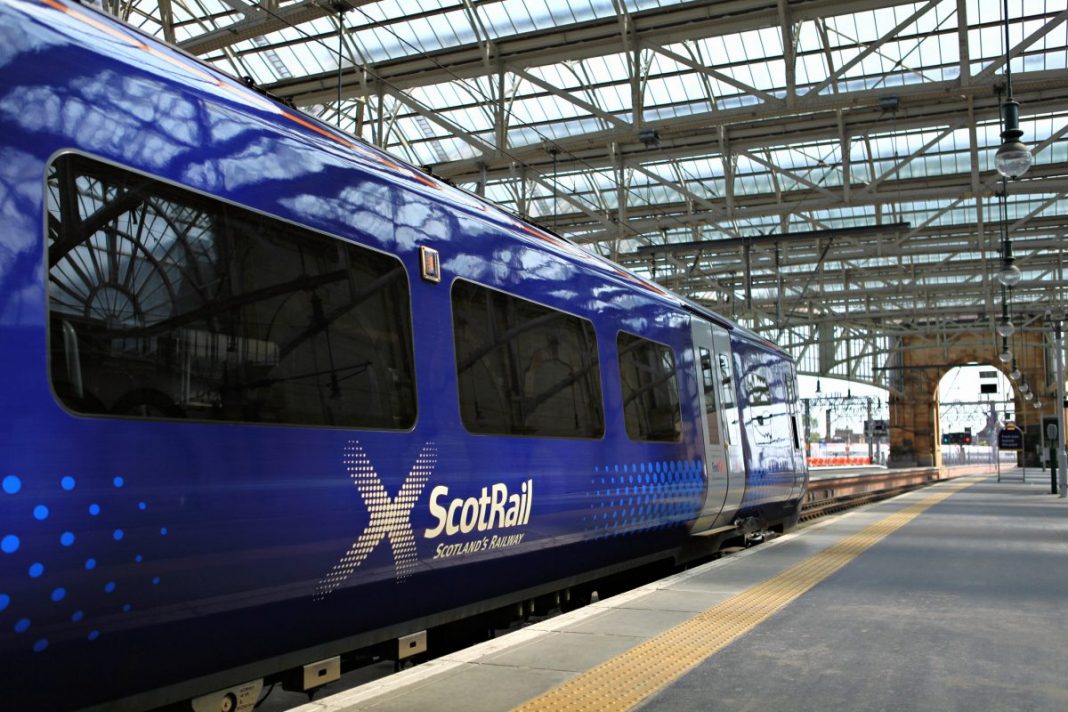[Part 1 of this post is here.]
This will be the last blog post for 2024, so here’s a gift suggestion for the holidays. Consider helping someone you love develop a greater appreciation for “option value” as a public good. It sounds complicated and nerdy, but it is very simple.
It matters for energy and climate policy, and I will get to that; but first lets talk about trains.
Thanks originally to a teaching gig that began 25 years ago, I have been fortunate to be able to spend a significant amount of time over the years in Edinburgh, Scotland. One nice feature of European politics is the popular, cross-party support for government provision of a broad array of public goods to its citizens, including good train service.
When my wife and I are in Edinburgh, we have gone months without ever using an automobile (including taxis or ride shares). The city is very walkable, but the main reason we never have to drive or take a taxi is because mass transit services are ubiquitous and efficient (by American standards**). More to the point of this post, people value them as an option. Regardless of which party controls the UK government, the government values the ability of its citizens to use trains and buses to get around.
And this is true even if it means many of the seats on those trains and buses are empty.
By way of example, as of this writing there are 128 trains per day covering the 40 minute trip between Edinburgh and Glasgow, 60 trains per day covering the 4.5 hour journey between Edinburgh and London, and 102 trains per day for the 90 minute trip between Edinburgh and Newcastle. Occupancy rates on many of those trains are often low. In the United States, those empty seats would be regarded as a a waste of taxpayer money by conservatives and some economists. But in the UK and most of Europe those views do not prevail.*
Why? It is probably not because mass transit provides environmental and climate benefits people, or that good train service drives down airfares. Rather, it is the value to taxpayers, businesses and voters of having the (often unused) option to travel between those cities on short notice that matters.
Nor is this a question of private versus public services. In Scotland, the trains are mostly private (that may change after the recent election). But companies providing train service must earn a franchise from the government, and those franchise agreements specify levels of service. So, whether the service is provided directly by the government or by way of contract with a private company, the government ensures that its citizens retain the option to get to Glasgow, Newcastle or London expeditiously and affordably.
As we Americans await the results of yet-another plan to eliminate imagined public sector “waste,” it is worth remembering that government steps into markets to do the things that people want, but markets won’t do. In that sense, government services are not supposed to be economically efficient; rather, they are a response the market’s inability to provide a socially beneficial service.
Option value is important to energy policy too. Because our need for electricity varies significantly over the course of the day, season and year, it is important to have unused supplies ready in reserve in case we need them on short notice. How we provide those reserve supplies differs by region, and is a subject of contentious debate among experts. (I summarize those debates in Climate of Contempt; and click here for an even deeper dive.) As is so often the case in the internet age, many people are very, very certain that they know the best way to provide those reserves, and their various prescriptions conflict with one another.
It is easier for pundits and academics to find that certainty than it is for government officials. Public utility commissioners may lose their jobs if the grid fails (see e.g., here and here). So they tend to favor the construction of enough grid-based generating capacity — and enough firm (read: less weather-dependent) capacity — to ensure reliability under all imaginable scenarios.
But even among commentators who favor regulators’ grid-centric approach, there is sharp disagreement about what technologies those reserves ought to be. Others contend that we can avoid the costs associated with maintaining unused reserves by relying much more heavily on distributed, “behind the meter” solutions — rooftop solar, home batteries, technologies and rate structures that incentivize customers to forego demand during supply crunches, etc. They see efforts to build enough grid-based reserves to cover foreseeable demand as a waste of taxpayer/ratepayer money or the product of utility “capture” of regulators.
But regulators are cautious for a good reason. They know from experience that power outages or skyrocketing energy prices produce sharp backlashes from voters. That is why their legislative and regulatory choices tend to avoid ruling out any particular technology, and forgoing generation reserves. No one ought to be certain about an uncertain future.
In my book I quote Karl Popper (among several others) on the dangers of replacing the search for truth with the search for certainty (p. 20). Our brains don’t like uncertainty. But that is a dangerous impulse. Be a critical thinker about advocates who urge us to rule out future policy or technology options. Be humble about the techno-economic future. The challenge is to build a low- or net zero-carbon emission energy system that provides us all with affordable, reliable energy.
And if (like me) you worry about American democracy’s slide into some version of populist authoritarianism, help someone you know appreciate option value this holiday season. Whether it’s train service, or energy reserves, or the value in preserving all of our technology options for a net zero future, there is a collective societal value in having options. And since real world markets often under-supply those options, defend the right of government to step in to ensure that they are there when we need them.
Have a very happy holiday season! – David Spence
——————–
** For a clear explanation of why Amtrak passenger service is so poor by world standards, click here.
*For an informative and hopeful discussion of the prospects for improved passenger rail in the U.S., see this recent interview with outgoing Secretary of Transportation Pete Buttigieg — click here.



